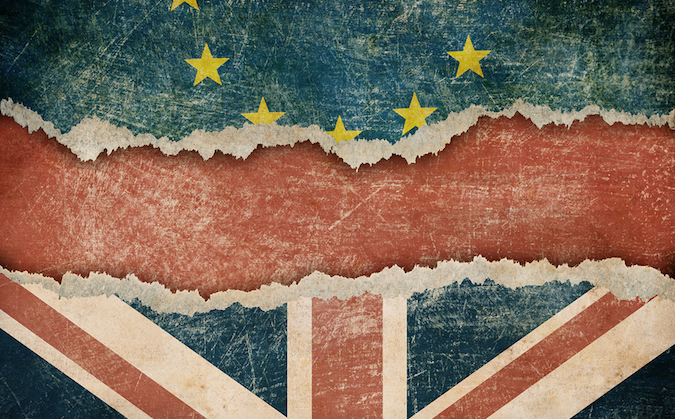
The EU should take advantage of Britain’s departure from the union to forge a common security policy, Germany’s defense minister said on Wednesday.
London had “paralyzed” European efforts to have a more closely integrated security policy, charged Ursula von der Leyen, as she presented Germany’s strategic defense outlook.
“Europeans are right to expect that the EU tackles the big questions,” she said, adding that “we now have that opportunity” after the departure of Britain, which “consistently blocked everything with the label Europe on it.”
Von der Leyen was presenting Germany’s first big-picture defense outlook in a decade, pledging Berlin’s willingness to play a greater role in the world.
Europe’s top economy also pledged to work with EU and NATO allies to tackle cross-border challenges, from the threats posed by Russia to Islamist terrorism to climate change.
“Germany is a globally highly connected country that — due to its economic, political and military weight, but also in view of its own vulnerability — has a responsibility to actively help shape the world order,” said the paper.
Germany is ready to “help meet current and future security and humanitarian challenges,” said the roadmap approved by Chancellor Angela Merkel’s cabinet.
Von der Leyen said the message was that “we are not going to pretend we’re bigger than we are, but also not that we are smaller.”
‘Lessons of history’
The strategic outlook is seen as a milestone for a country that, burdened by guilt about Nazi terror and the Holocaust, for decades trod softly on the world stage and only joined peacekeeping missions in the 1990s in the Balkans.
On Germany’s dark history, von der Leyen said: “We will never forget where we come from and will act based on the lessons of history — which also teaches that sometimes it is wrong not to act”.
Germany has in recent years deployed troops to Afghanistan, Mali and elsewhere, and backed the multi-national alliance against the Islamic State group by arming Kurdish fighters in Iraq and flying surveillance missions over Syria.
Merkel has taken a key role in seeking to defuse the West’s conflict with Russia over the Ukraine crisis, but last week also pledged troops to bolster NATO in eastern Europe from next year.
The defense paper notes that Russia has adopted a “strategic rivalry” with the West and, unless it changes course, “will for the foreseeable future represent a challenge to security on our continent”.
‘Crises and conflicts’
The paper also points out that the United States wants its European NATO allies to assume a greater security role, even as EU national militaries have shrunk amid the debt crisis and “against the background of a supposedly peaceful environment”.
Instead, an increasingly interconnected and multipolar world had thrown up “unprecedented” crises and conflicts, it said.
It listed dynamic and interconnected challenges in a world where emerging powers in Asia and South America are assuming a greater role and an “arch of instability” stretching through much of northern Africa, the Middle East and Central Asia.
The “most immediate threat” for Germany is that of a major terrorist attack, the paper said, adding controversially that in such a case the military should be able to respond within national borders.
The 83-page paper also pointed at other dangers, from the spread of weapons of mass destruction to global pandemics to cyber attacks on critical infrastructure.
As a step toward closer European cooperation, the paper suggested that citizens of other EU countries could in future join the German army, which has struggled to find enough volunteers since conscription ended five years ago.
That idea, however, was quickly shot down by a soldiers’ advocacy group that said “German citizenship is fundamental to us, and it must stay that way, because of the special mutual loyalty between state and soldier”.














